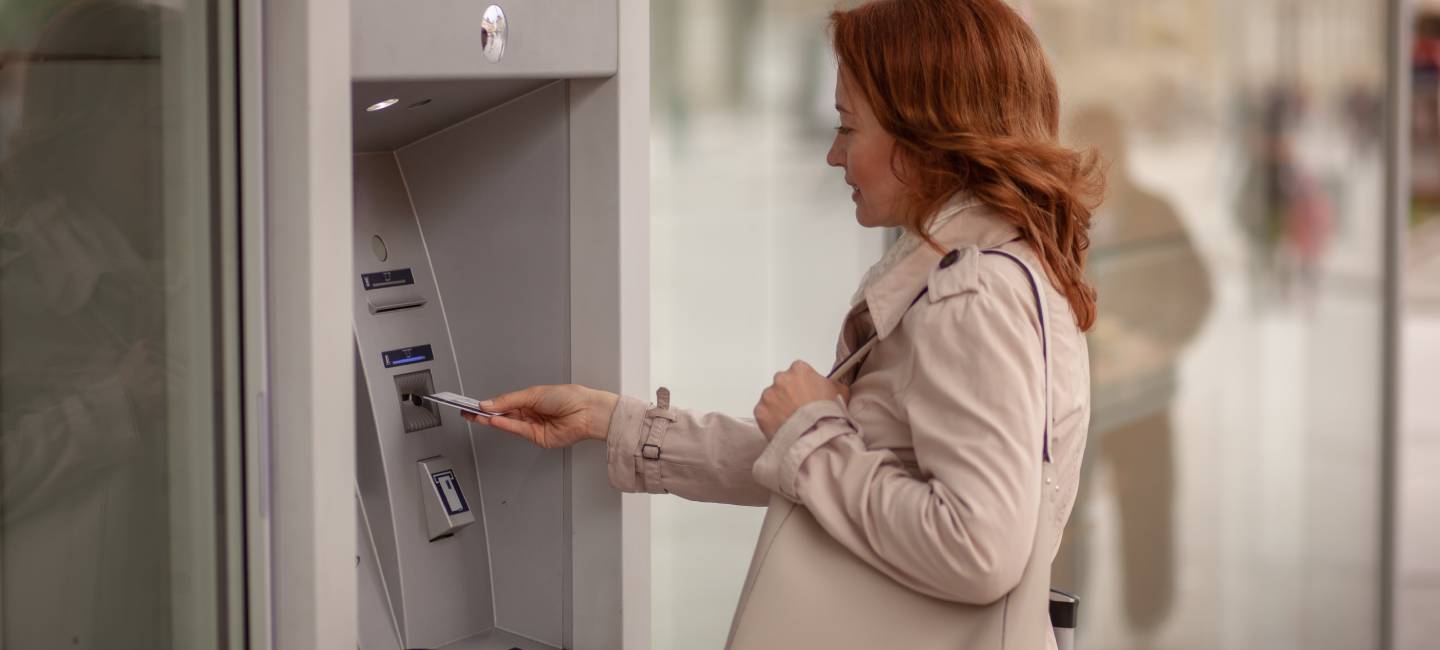
We’ve all opened the door to find ourselves greeted by a salesperson or been interrupted with an unexpected phone call selling us something we don’t want.
However, with doorstep scams – when someone knocks with the aim of convincing someone to part with money fraudulently – often targeting vulnerable or older people, it’s important to be able to spot the signs.
But it doesn’t even have to be an attempted con – a legitimate, but pushy, salesperson that won’t take no for an answer can also be stressful – especially if the person feels pressured with a ‘limited time deal’ or to pay a deposit there and then.
The good news is there are protections against this, and organisations who can help – but if you’re worried about a vulnerable loved one, knowing what to do and when can be crucial to stopping them spending thousands of pounds unnecessarily.
There’s no law to prevent doorstep selling in the UK, but it can still be a difficult interaction – especially if it’s from unlicensed tradespeople.
If you’re worried about a loved one being targeted by unscrupulous sellers, helping them to get a prominent sticker on their door (you can print one from the Age UK website or buy one online); making it clear cold callers are not welcome is a good first step.
Anyone that ignores this and still tries to sell at the door could then be committing a criminal offence under the Consumer Protection from Unfair Trading Regulations 2008.
While it might not be possible to always be around when someone comes to the door of a vulnerable family member or friend, Louise Baxter, behind consumer rights website Consumer Friend, says to advise them to simply point to the sticker and state they do not deal at the door.
If the seller persists, or your loved one is nervous about confrontation, Baxter suggests a few phrases that could help.
She advises: “‘Can you [give] me some information? I will think about it and let you know’. Or say ‘I don't want to talk about this right now, can you call me back at a different time?’ Legitimate companies won't mind that.”
However, it’s important to remind anyone worried that a simple ‘no, thank you’ is protected by law, and they’re under no obligation to continue the conversation – this should protect them from follow up visits or calls.
Some people may come to the door selling goods such as books or beauty products. In these cases, look out for quality marks such as the Direct Selling Association logo, which means members are required to offer greater protection and rights to customers.
You can also ask to see their Pedlar's Certificate, issued by the Police, as anyone selling door to door is required to have one.
Having this document proves they’re certified to sell throughout the UK – they'll have had to provide proof of address and a referee when applying and can be fined for selling without one.
While most tradespeople treat customers fairly, it’s possible your loved one could be targeted by someone less scrupulous and be pressured into having work done that may be unnecessary or could do more damage.
They might be charged too much, given a different product or be offered no guarantees if something goes wrong.
Importantly, everyone should always say no to high pressure selling. “Be cautious of salespeople who push you to make an immediate decision,” says Susannah Schofield, OBE, Director General of the Direct Selling Association.
“A reputable salesperson will give you the time you need to think over your purchase without pressure.”
As a reminder, the simple rule of thumb here is: if you’re unsure, feel confident in saying ‘No, thank you’ and ask them to leave, which they are legally required to do.
Consumer champion Which? recommends never hiring traders who come to your door looking for work - but if someone wants to consider an unsolicited approach, always get them to find three other quotes from verified traders and get a contract in place before embarking on major work, such as roof repairs.
Make sure they never pay up front for services, or give a large deposit, and only settle a bill when the work is completed as agreed.
There are several conditions that anyone engaged in door-to-door selling must adhere to (and this can be in the buyer’s home, at a workplace or in someone else’s house).
These include giving full contact details, an address for complaints, a clear description of the goods or services you’re buying and a total price (or information on how it will be calculated).
The full list is available on the UK Government website, and if any salesperson isn’t willing to abide by this, you’re well within your rights to ask them to leave.
This information must also be easy to understand and in a form that can be saved for future reference, such as in an email or on paper.
If they’ve bought from a door-to-door salesperson, anyone is also allowed to cancel an order up to 14 days after making it - and don’t need to give a reason.
The vendor must make this cooling-off period clear, otherwise the buyer is allowed to cancel any time in the next 12 months.
.jpg?sc=max&mw=800&h=450&la=en&h=731&w=1300&hash=E54820D10DCE007FA5EE217262840408)
Cold calls and emails are, generally, not illegal, but companies must have obtained an individual’s consent before sending marketing communications.
At some point your relative or friend may have consented to third-party communications when buying a product or service – but that doesn’t mean they have to keep receiving them, and you can remind them to uncheck the box that allows this in the future.
If someone has made it clear they don’t want to receive unsolicited communications, the Privacy and Electronic Communications (EC Directive) Regulations 2003 prohibit a company to make contact.
Baxter adds that it’s always best to stop salespeople getting through to someone in the first place. If you’re worried about a vulnerable person engaging with sales calls, you could get a call-blocking device fitted to the landline to ensure fraudsters (and other nuisance calls) can’t get through as easily.
Call blockers can stop calls from numbers not in your phonebook, redirect them straight to voicemail or filter contact from international numbers.
You can also register an individual’s number with the Telephone Preference Service (TPS) for free, either online or by calling 0845 0700707. This will add their phone number to the TPS register, showing salespeople or charities that they do not want unsolicited calls.
It is against the law for someone to contact people on the register, but do allow 28 days for unwanted calls to stop coming through.
Cold calls about pensions are illegal – and that covers emails or texts too – and are likely part of a pension scam.
No legitimate company would call or message unsolicited to sell you a pension scheme, so such calls should be terminated and reported – even if the call appears to come from a trustworthy organisation.
“We advise all savers to reject unexpected offers and avoid hasty decisions. Please, stop and think,” says Paul Sweeney, the Pension Scams Action Group lead at The Pension Regulator.
“Scammers are often clever, charming and articulate, and will deliberately build a relationship with you, so they feel like a friend.”
Mike Broomfield, Head of Intelligence at The Pensions Regulator, agrees: “The real difference we’ve seen over the years is a shift to cyber fraud. If a company contacts you on social media or by email, it’s the same as cold calling: it’s illegal, so don’t engage.
“Really do your homework and check if the company you’re dealing with is FCA registered.
"The Money and Pensions Service (MaPs) and MoneyHelper are good places to go for free, impartial advice. Pause and think about what you're doing and if you're uncomfortable, don't take any more communication from the people who are calling you.”
Another way to protect people from pressured situations is to sign them up to the Fundraising Preference Service to stop unwanted contact from charities.
You can sign up on behalf of a friend, relative or someone who has died. You can use the service even if someone has previously consented that it’s OK for the charity to contact them, which could have been done unwittingly.
For more ideas, check out Friends Against Scams, a website dedicated to helping you stop your loved ones and others from being pressured into spending money.
If you feel your relative or friend has not got the product or service they paid for or felt coerced or intimidated into taking out a contract or buying goods, write to or email the company saying you’d like a refund.
The Citizens Advice charity says you should tell them how they were pressured or misled into buying the item or service, and state they’re entitled to a full refund under the Consumer Protection from Unfair Trading Regulations 2008.
If they refuse to refund money or put a service right, check the seller’s website to see if they belong to a trade association that can help.
You may also be able to get money back if payment was made with a credit card, debit card or service such as PayPal and you raise a dispute.
The final resort is to apply to a county court to claim money owed but, ideally, you’ll reach a settlement before this stage.
Contact the Citizens Advice consumer service for further guidance, either on the website or by calling 0808 223 1133.



Understand how your money is taxed in retirement and learn simple ways to reduce your bill.

/mature-couple-looking-at-taxes.jpg?la=en&h=650&w=1400&hash=5CFABEEDC751F26D56DD3E85749E3C36)



Discover the methods criminals use to steal your card details and cash, and learn essential steps to protect yourself.